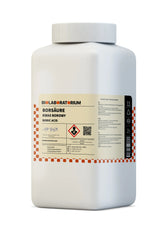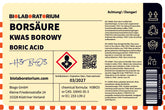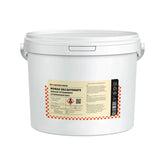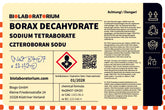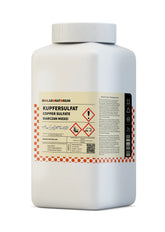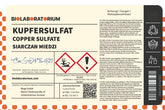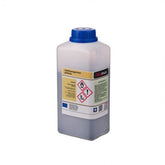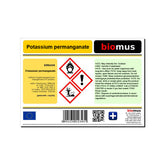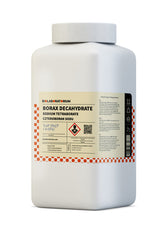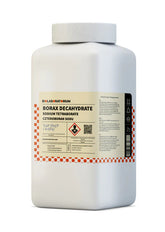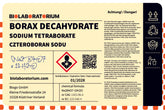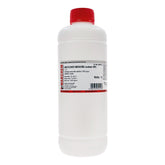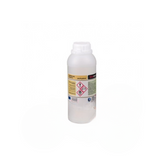Sodium alginate: The versatile natural polymer for technology and laboratory
Sodium alginate is a fascinating natural polymer used in a variety of applications. Whether in industry, laboratories, or even in cosmetic products – this biopolymer impresses with its unique properties and functionalities. In this blog post, we want to take a closer look at sodium alginate and explore its diverse applications.
What is sodium alginate?
Sodium alginate is a salt of alginic acid, which is derived from brown seaweed. It is a linear polysaccharide composed of the monomers mannuronic acid and guluronic acid. These sugar units give sodium alginate its characteristic properties such as viscosity, gelling, and stability.
Sodium alginate is a versatile biopolymer used in a variety of applications. It is characterized by the following properties:
- High viscosity in aqueous solutions
- Good gelling properties
- Stability against acids and bases
- Biocompatibility and non-toxicity
- Easy processing and handling
These properties make sodium alginate an extremely useful and versatile material in industry, technology, and research.
Technical applications of sodium alginate
In industry, sodium alginate has a wide range of uses. Due to its viscosity-increasing and gelling properties, it is often used as a thickener, stabilizer, or emulsifier.
Applications in the food industry
In food processing, sodium alginate serves as a thickener, stabilizer, and gelling agent. It is used, for example, in puddings, sauces, jams, or ice creams to achieve the desired consistency and texture. Additionally, it can be used as an emulsifier in mayonnaise or salad dressings.
Applications in the cosmetics industry
Sodium alginate is also an important ingredient in many products in the cosmetics industry. It is used in creams, lotions, gels, and shampoos, where it acts as a thickener, stabilizer, and binder. Furthermore, due to its biocompatibility and skin tolerance, sodium alginate can be used in skincare products.
Applications in the textile industry
In the textile industry, sodium alginate is used as a thickening agent for dye baths. It enables an even distribution of dyes and prevents color bleeding. It is also used as a sizing agent for fabrics to increase their strength and stability.
Applications in the paper industry
Sodium alginate also plays an important role in paper manufacturing. It is used as a binder to improve the strength and surface properties of paper. Additionally, it can be used as a thickening agent for coatings and printing inks.
Applications in the oil and gas industry
In the oil and gas industry, sodium alginate is used as a component of drilling fluids. It serves as a thickening agent to increase the viscosity of the drilling fluid and improve the removal of solids.
Applications in laboratories and research
Besides the diverse industrial applications, sodium alginate also finds numerous uses in laboratories and research.
Use in cell culture
In cell culture research, sodium alginate is often used as a component of hydrogels. These three-dimensional matrices serve as scaffolds for cell growth and differentiation. By embedding cells in sodium alginate hydrogels, natural cell-cell interactions and environments can be better replicated.
Applications in analytics
In analytical chemistry, sodium alginate can be used as a carrier material for solid-phase extraction or ion exchange. Furthermore, it is applied in chromatography, where it serves as a stationary phase or coating material.
Use in medicine
In the medical field, sodium alginate is widely used due to its biocompatibility and non-toxicity. For example, it serves as a wound dressing material to retain moisture and support healing processes. It is also used in dentistry as an impression material.
Applications in research
In research, sodium alginate is often used as a model system to study the fundamental properties of biopolymers. Additionally, it can serve as a carrier material for immobilizing enzymes, proteins, or microorganisms.
Conclusion
Sodium alginate is a fascinating natural polymer that is used in a variety of applications due to its unique properties. From industry to research – this biopolymer impresses with its versatility and functionality. Whether as a thickening agent, stabilizer, emulsifier, or carrier material – sodium alginate is a true all-rounder that has become indispensable in many areas.

